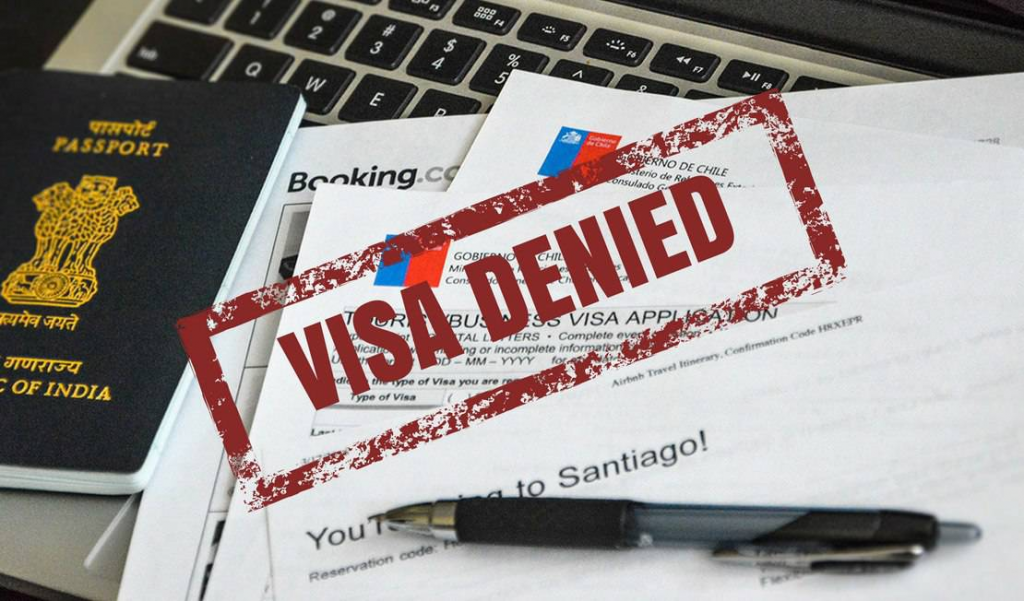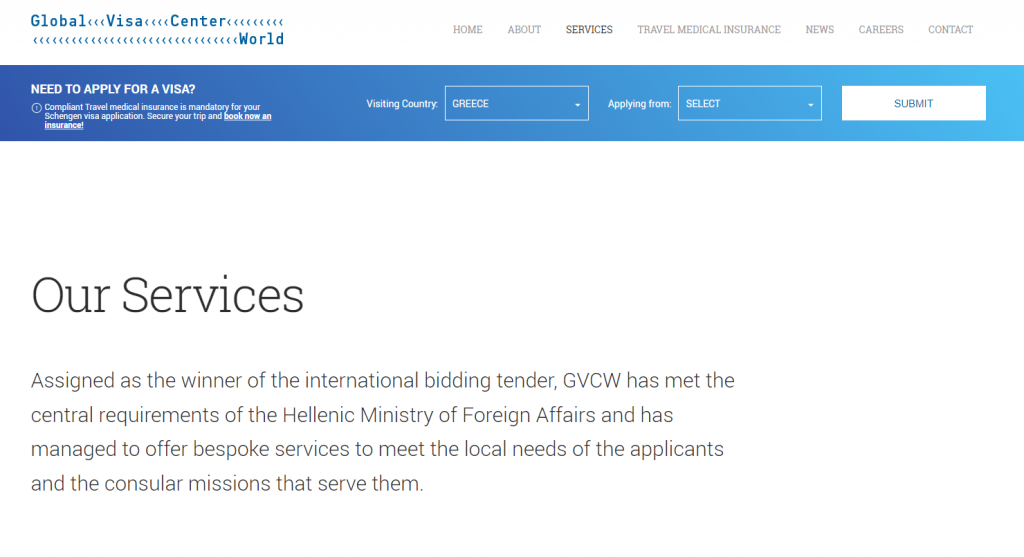A visa is a certified travel document for international travelers to enter a foreign country. No matter which country you are traveling to, there are lots of things to prepare before and during the process. However, your visa application might be rejected. Although it seems quite depressing, please note that visa rejection is a common case. Why your visa is denied can be attributed to either the applicant or the visa-issuing country. In this passage, we are going to talk about common reasons for visa rejection, tips to avoid it, solutions after rejection, and other related issues.

Common Reasons for Visa Rejection
During the visa application process, the officer will check all the details of the paperwork and your performance in the interview. Therefore, any mistake might lead to rejection. Here are some common reasons.
Incomplete Information
There are many things to fill out on a visa application form. The officer will reject your application due to any information missing. Therefore, it is suggested to carefully check your form and make sure all required fields are completed and no mistakes. If you have questions about any blank field, just read the instructions first or turn to your counselor. Moreover, you have to provide travel details, such as where you are visiting, date of arrival and departure, duration of stay, hotel bookings, etc. This is especially important when applying for Schengen visas to travel to multiple countries.
Insufficient Supporting Documents
Lots of documents are required when applying for a visa. Visa requirements vary from country to country. General documentation includes proof of identity, proof of citizenship, biometric photos, travel itinerary, proof of funds, etc. Extra documentation is needed depending on the visa type and purpose of traveling. More importantly, if you are applying for a non-immigration visa, ties to your home country must be proved so as to persuade the interviewer that you do not intend to stay in the country. It is necessary to learn about what you should submit because a lack of any documents will lead to a negative decision.
Inconsistent Information
The information you provide on the information form must be the same as that on your supporting documents and what you answer in the interview. Most importantly, the details must be truthful and accurate. Providing false information will result in visa rejection or even refusal. We will talk about the difference later.
Insufficient Fund
Many countries require foreign visitors to prove that they have enough funds to support their trip, such as bank statements, payslips, or employment contracts. It aims to show the authority that you will not be in financial trouble and work legally abroad or burden the host country. The minimum financial requirement differs according to your destination country and visa type. The general guideline is to cover your expenses throughout the trip. For example, the daily required amount for a Schengen visa varies from €14 to €100. A 15-day US tourist visa requests $5k-10k in your bank account. A Canadian visa needs proof of CAD 1,230 per month.
Ineligible Passport Validity
Almost all countries require your passport to be valid for a certain amount of time upon arrival or departure. For example, your passport must be valid for at least 3 months when applying for a Schengen visa or US visa, and 6 months for a Canadian or UK visa.
Unclear Travel Purpose
Applicants must explain why they travel. Common purposes of traveling include tourism, study, business, working, family or friend visits, or immigration. The officer will reject your visa application if they think you don’t clearly tell your travel purpose or they don’t believe in the purpose.
History of Crime
The immigration officer will check your previous traveling record. Supposing that you have ever violated the immigration rules or local laws, such as overstaying, illegally working, illegal entry, etc., you will be likely to be rejected. Additionally, criminal records in your home country would also be considered for the sake of the country’s security. Therefore, in no case should you violate the rules and regulations.
Urgent Application
The processing time ranges from a few weeks to months in different countries. If you apply a few days before the date you set off, you will be very likely to be rejected because the embassy or consulate doesn’t have enough time to deal with your application. Even if there is an urgent visa, they are often issued in emergencies.
Unreliable Credibility of the Sponsor
A visa sponsor refers to someone who pays the expenses for individuals who do not have an income to support their travel abroad, such as students or minors. If you have a sponsor, you have to provide his/her personal information, annual income, source of income, taxes, etc. The authorities will check your sponsor’s credibility when considering whether to approve your application or not.
Failure in the Interview
Having a face-to-face talk with the immigration officer is usually the final step of visa applications. If you don’t perform well in the interview, such as speaking haltingly, hiding the truth, submitting insufficient documents, etc., your visa will also be rejected.
How to Check Visa Rejection Status?
The visa application status can be checked online, by email, SMS, or post, depending on how you apply and where you travel.

When applying for a US visa, you can visit Visa Status Check portal of the US Department of State and enter the passport number and case number.

The Schengen area allows visa applicants to track the status visa at the local embassy, on its official website, or the third-party’s website (e.g. VFS Global, BLS visa application center).
The Canadian government launched an Application Status Tracker to check visa application results.
What To Do If My Visa Is Denied?
On the condition that the consular officer finds you are not eligible to receive a visa, they will deny your application and tell you why. If you think the decision is unreasonable, you can contact the embassy and ask whether it is possible to appeal a visa denial. If not, you can re-apply again and try to avoid making the same mistake. If yes, you should submit an appeal letter. The following information is suggested to be included in the letter.
- Full name
- Full address
- Date of birth
- Place of birth
- Passport number
- Email address
- Phone number
- Time of application
- Purpose of travel
- Date of denial
- Reasons for denial (as stated by the embassy)
- Arguments for why you think the rejection is unreasonable
Print out the letter and sign at the end. Include the supporting documents in the appeal if necessary. There is no fixed template for the letter, but make sure it is convincing and argumentative.
Is Visa Rejection Bad?
Yes. Visa rejection is quite frustrating. It means you are not allowed to enter your destination country. Imagine that you have been expecting and preparing for the trip for weeks only to find that you must cancel it. Worse still, you might suffer great financial loss, including the visa application fee, airfare, accommodation fee, and other travel expenses. In most cases, the application fee is non-refundable even if it is disapproved. If you are applying for a long-term residence permit, you might be deported if rejected.
Can You Apply Again for A Visa If They Are Denied?
Yes. In most cases, applicants can re-apply for a visa, but when you can apply again depends on the reasons for denial, the visa type, and where you apply from.
In the US, if you are rejected due to incomplete application and documentation, you are allowed to provide the missing documents or information within one year from the date of refusal. In this case, you don’t need to submit a new visa application and pay again.
If you are rejected due to visa qualifications or immigration intentions, you cannot appeal. A new application must be filed again and proof of significant changes in circumstances since your last application should be shown.
How Many Times Can a Visa Be Denied?
There are unlimited times that your visa can be denied as long as your application is not qualified. Most countries don’t restrict the number of times of visa applications, but it doesn’t mean you can submit the same application without any modification over and over again, otherwise, you might be banned. Continuous rejection will decrease the chance of getting approval. It is highly recommended to correct the mistakes at each rejection.
What Is the Difference Between Visa Refused and Rejected?
Visa refusal means your visa application is rejected and you are refused to enter a country because you did something wrong and the mistake was put on record permanently, such as seeking advice from fake counselors or submitting fraudulent documents. Visa rejection means an insufficient application and paperwork need to be resubmitted.
Tips to Avoid Visa Refusal and Rejection
Although it is difficult to guarantee the approval of your visa application, here are some tips to increase your chances of success.
💡 Check your passport and make sure it satisfies the entry requirements of your destination country. If not, renew it as early as possible.
💡 Start applying as early as possible. As we stated before, your application might be rejected due to insufficient time for processing. Therefore, it is suggested to apply for a visa at least 30 days in advance.
💡 Double-check your application form before handing it in. Make sure there are no mistakes or missing information.
💡 Don’t leave out any supporting documents, especially when both original copy and photocopy are required.
💡 Don’t leave out any supporting documents.
💡 Sincerely explain your purpose of travel and your ties to your home country when applying for a non-immigrant visa.
💡 Dress decently to attend the interview and answer the questions honestly and confidently.
Summary
Being rejected to enter a foreign country can lead to a series of consequences, which is undoubtedly depressing. The negative decision can be caused by mistakes in the applicant or documentation. Learning about the common reasons for visa rejection helps to avoid unpleasant results. Although you can re-apply for unlimited times, repeated rejection does no good to your applications. Therefore, it is suggested to make a full preparation and avoid any possible mistakes.
📚 Further Readings: Visa Tips